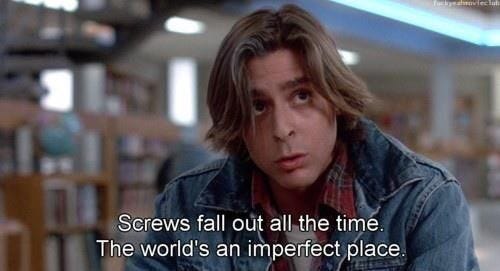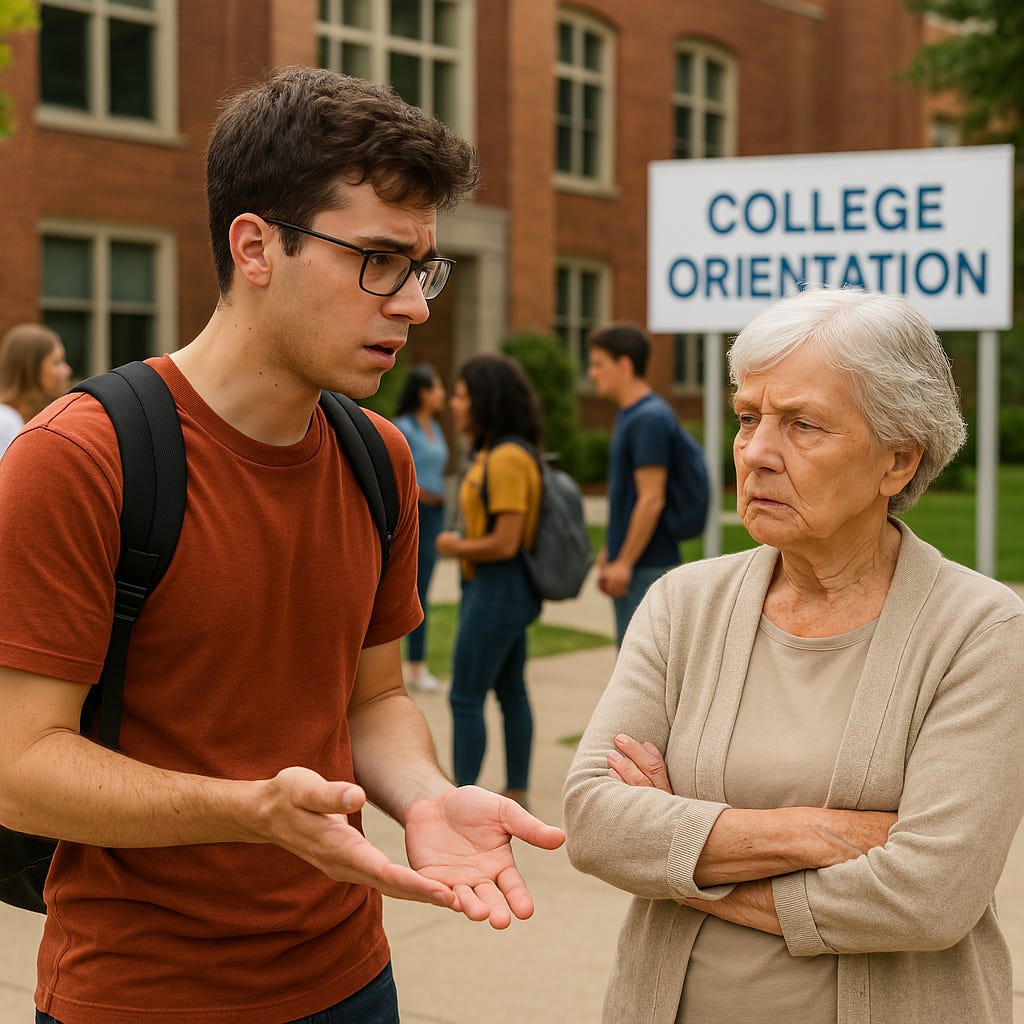If you subscribed after reading the debate series on positive psychology (source) and parenting (source), welcome to the warm, curious, and socially courageous Provoked community.
When people say they have an insecure attachment style, they usually mean something small. Perhaps their partner took too long to respond. Maybe a friend bailed on dinner plans. Or they grew up with parents wavering between love and neglect, leaving them wary of emotional intimacy.
Me? I learned about abandonment the old-fashioned way.
It was freshman orientation at Binghamton University. I was 17, standing in line to ask an administrator about courses, when I met her. She had wild blonde curls and the kind of smirk exposing half irritation, half femme fatale. Her mom stood beside her. My grandmother stood beside me.
She looked at me and said something sweet about my beauty marks (which is my big insecurity - source). And just like that, I forgot where I was.
My grandmother did not. She leaned in, voice low and sharp: Remember why you’re here. It’s not to pick up girls.
I probably nodded. I didn’t listen. The girl and I ended up walking the campus together, sitting on a stoop for who-knows-how-long. She wore cut-off denim shorts and ran her fingers through her curls in that way people do when their body can’t keep up with their excitement. I was having the best time. It was this breathless, fast-paced affair without the slightest physicality. She mentioned a boyfriend at home in Connecticut. I said I’m a patient boy and can wait until freshman year or if necessary, longer. The kind of thing young people raised on John Hughes movies dream of saying.
Hours later, we walked past a spot where my grandmother was sitting, scowling. I told her, I feel so comfortable here! I’m way less nervous than expected. She didn’t smile. She didn’t say anything. She shoved a handwritten note in my direction and walked away.
I opened it.
“I drove you here. Spent my time and money for you to go to college. You deserve none of it. I’m going home without you. Find a ride home Good luck.”
Then she left. And it’s worth pointing out that it would take 5.5 hours by car to get home. No cell phones. No backup plan.
And that’s how I learned what it feels like to be abandoned. Even worse, abandoned and feeling it’s deserved.
What Do You Do with That?
You’d think, decades later, I’d be over it. That it would spark weird stories of youthful delinquency at dinner parties. But if you’ve experienced something like this, you know it doesn’t stay in one place. It follows you. It rewires you.
It turns Where are we going for dinner? into Are you going to leave me?
It turns Sorry, I was busy into I knew it. You don’t really care.
It turns I love you into For now.
Abandonment leaves imprints. It teaches you that the people you rely on might disappear when you least expect it. That security is conditional.
So what do you do? (including a new 13-item test of your abandonment issues)




